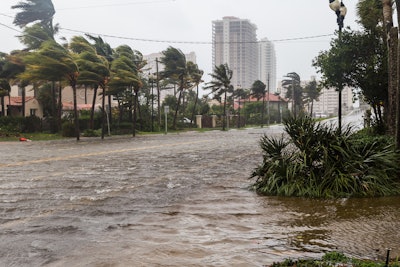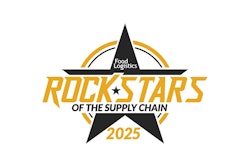
Satoshi Kina AdobeStock_171083541
Exiger's artificial intelligence (AI) identified over 50,000 individual companies directly impacted by Hurricane Milton and 33,000 indirectly impacted, with agriculture, pharmaceuticals, medical devices, defense and aerospace expected to be hardest hit.
“Exiger is working with customers across the private and public sector to advise and model how organizations can best respond to the aftermath and limit the effect on their supply chains,” according to Exiger.
Key takeaways:
- Pharmaceutical products and medical devices represent a high volume of shipped goods out of Tampa. Short-term facility closures could worsen constraints that the industry is already facing from Helene, including a national IV fluid shortage.
- Per Exiger's analysis of U.S. government contracts data, 20% of prime awardees that received awards performed in Milton "warning" and "watch" zones are categorized as "medical, dental, and hospital equipment and supplies merchant wholesalers." Damage incurred from this week's hurricane could impact the supply of medical goods under these contracts and exacerbate the IV fluid shortage.
- Over 12,000 U.S. government contracts performed in Tampa Bay area counties are awarded to companies for aircraft- or missile-related goods and services. Specific aircraft award product and service descriptions include airframe structural components; aircraft accessories and components; and aircraft hydraulics, vacuum, and de-icing systems.
- Fertilizer is a major commodity shipped from the Port of Tampa, representing a principal export by total value. In particular, the Tampa Bay area is an important source of fertilizer derived from phosphate. Although fertilizer prices have generally fallen since 2022, any resulting shortage could have a knock-on effect for food prices.


















